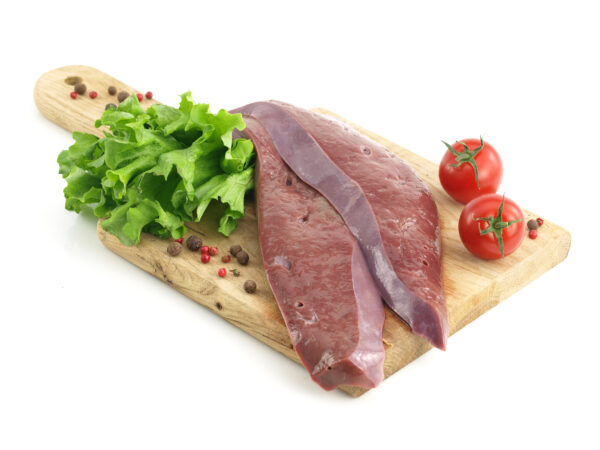Hello there! Have you ever wondered if you can freeze liver after cooking it? In this article, we’ll explore this question and provide you with some valuable information. We’ll discuss the freezing process and the potential impact on the texture and flavor of cooked liver. So, if you’re curious about whether or not it’s possible to freeze liver after cooking, keep reading to find out!
Can You Freeze Cooked Organs Like Liver and Kidney Beans?
Yes, you can freeze cooked kidney beans. Freezing cooked kidney beans is a great way to preserve them for future use. After cooking the beans, allow them to cool completely before transferring them to a freezer-safe container. They can be stored in the freezer for up to 6 months.
Can You Freeze Liver After Cooking

Overview
Liver is a nutrient-dense food that offers numerous health benefits. Whether you’ve cooked up a hearty liver dish or simply have leftovers from a previous meal, you may be wondering if it’s possible to freeze cooked liver for future use. This article will explore the ins and outs of freezing cooked liver, including the recommended storage time, preparation before freezing, packaging options, and the safe thawing process.
Cooking Liver
Before diving into the freezing process, it’s important to understand the basics of cooking liver. Liver is a delicate organ meat that can be quite flavorful when cooked properly.
When preparing liver, it is advisable to trim off any excess fat and soak it in milk for a few hours prior to cooking to help remove any bitterness.
Liver can be pan-fried, grilled, baked, or even used as an ingredient in dishes like liver pate or liver sausages. Once cooked, liver should be enjoyed immediately for optimal taste and texture.
Freezing Cooked Liver
The short answer to whether you can freeze cooked liver is yes. Freezing cooked liver is a great way to extend its shelf life and have it handy for future meals. However, it’s important to note that freezing may affect the texture of the liver. It may become slightly grainy or lose some of its tenderness after being frozen, therefore, it’s best to use frozen cooked liver in recipes where texture is less important, such as liver pate or liver-based stews.
Recommended Storage Time
To maintain the quality and flavor of cooked liver, it is recommended to consume it within three months of freezing. This ensures that the liver stays as close to its original taste and texture as possible. While frozen liver may still be safe to eat beyond this recommended time, it may not have the same palatability, and the risk of freezer burn increases.
Preparation before Freezing
Before freezing cooked liver, there are a few necessary steps that ensure the best possible outcome. Keep in mind the following recommendations:
- Cooling down: Allow the cooked liver to cool down completely. Placing hot food directly into the freezer can raise the internal temperature, potentially compromising other items in the freezer.
- Portioning: Divide the cooked liver into individual or family-sized portions based on your anticipated needs. This makes it easier to thaw and reduces the risk of unnecessary waste.
- Wrapping: Wrap each portion tightly with plastic wrap or aluminum foil to prevent exposure to air, which can cause freezer burn. Alternatively, you can use airtight freezer bags or containers for added protection.
Packaging Cooked Liver
Packaging plays a crucial role in maintaining the quality of frozen cooked liver. Here are some packaging options to consider:
Plastic wrap or aluminum foil: This is a cost-effective and readily available option for wrapping individual portions of cooked liver. Ensure the wrap is tightly sealed to prevent air exposure.
- Airtight freezer bags: These bags are specifically designed for freezer storage and offer protection against freezer burn. Squeeze out as much air as possible before sealing the bag to maintain quality.
- Freezer-safe containers: If you prefer to use containers, choose ones specifically labeled as freezer-safe. These containers provide an airtight seal and help prevent freezer burn.
Labeling and Date
When freezing cooked liver, it’s essential to label each package with the contents and date of freezing. This ensures you can easily identify the liver in the freezer and know when it was prepared.
It is recommended to use permanent markers or freezer-safe labels to prevent the information from smudging or fading over time. This labeling practice also helps you keep track of each package’s freshness and decide which one to use first.
Thawing Cooked Liver
To thaw cooked liver safely, it’s best to plan ahead. There are two recommended methods for thawing cooked liver:
- Refrigerator thawing: This is the safest method, albeit the slowest. Simply transfer the wrapped or packaged cooked liver from the freezer to the refrigerator and allow it to thaw overnight. This gradual thawing process helps maintain the texture and flavor of the liver.
- Cold water thawing: If you’re short on time, you can use the cold water thawing method. Place the wrapped or packaged cooked liver in a leak-proof plastic bag and submerge it in cold water. Change the water every 30 minutes until the liver is completely thawed. Be sure to cook the liver immediately after using this method.
Safety and Quality
While it is safe to freeze cooked liver, it’s important to note that the quality may slightly deteriorate after freezing. However, this decline is minimal and the nutritional value remains largely intact. It’s crucial to handle and store the frozen liver properly to minimize the risk of bacterial growth and maintain its quality.
Conclusion
In conclusion, freezing cooked liver is indeed possible and can be a convenient way to prolong its shelf life.
Following the recommended storage time, proper preparation before freezing, and appropriate packaging techniques will ensure the best outcome.
Remember to thaw cooked liver safely and utilize it in recipes where texture is less of a concern. By following these guidelines, you can enjoy the benefits of liver even long after it has been cooked.


